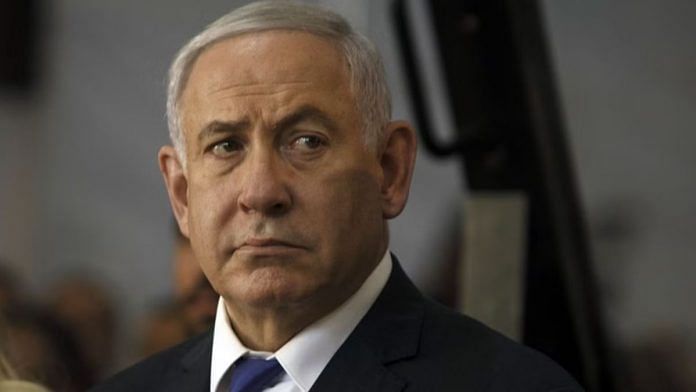There was worldwide sympathy for Palestinian suffering during the Israeli invasion of Gaza in 2008 but in Israel there was overwhelming support for the country’s military actions, which were seen as taken in self-defense.1 (The influence of the Israeli Left, those who called for an end to the occupation, continued to decline, as it had done since the suicide bombings of the Second Intifada.)
Elections held in February 2009 led to the formation of the most right-wing government in Israeli history. Prime Minister Netanyahu had overwhelming support from the increasingly powerful settler lobby, represented by the Yesha Council, and he renounced his predecessors’ peace proposals. He was committed to the concept of Greater Israel, to the continued colonization of land in the West Bank and the expansion of settlements in and around East Jerusalem. His uncompromising approach won him numerous reelections.
When President Obama took office in January 2009, many people entertained hopes of a breakthrough to peace. Obama believed that settlement building was the single greatest obstacle to any agreement between Israel and the PA. He let Netanyahu know, in no uncertain terms, that he regarded settlement building as “illegitimate.” However, Netanyahu knew that he could defy the US president and not pay any political price because of the strength of the US’s “Israel lobby,” largely made up of Jews and the far more numerous Evangelical Christians (many of the latter believe that Christ’s second coming will only occur when all Jews have returned to the “Land of Israel”—i.e., the biblical land, including Judea and Samaria).
The influence of this lobby, in turn, ddid much to explain why the US Congress remained unwaveringly pro-Israeli and kept voting for financial and military aid (as of 2023, over $3 billion annually) to Israel. So consistently strong was US support for Israel that, between 1978 and 2010, the United States exercised its right of veto on the UN Security Council in order to block resolutions that were critical of Israel on forty-two occasions.2 (Any one of the five permanent members of the Security Council—the United States, Russia, China, Britain, and France—has the power of veto.)
Meanwhile, Mahmoud Abbas, the head of the PLO and the PA, faced deadlock in his relations with both Hamas and the Israeli government. This may explain why he continued to look to the United Nations for support, especially as he hoped that the United States under Obama might be less obstructive than under Bush. In 2011, Britain, France, and Germany drafted a UN Security Council resolution condemning Israeli settlements. However, the United States used its veto for the first time during the Obama presidency, thus preventing its adoption. (The US government believed that passing the resolution would make the Israelis less likely to resume peace talks.)
Abbas did, nevertheless, secure secure a diplomatic breakthrough a year later when the UN General Assembly (which represents all members and votes by simple majority) recognized Palestine and granted it the status of a “non-member state with observer status” (similar to the Vatican). By mid2020, 130 out of 193 member states had recognized the state of Palestine. This diplomatic victory made no difference to the reality on the ground. In fact, Netanyahu’s response was a plan to build more settlements on a stretch of land that would effectively bisect the West Bank. Even when Secretary of State John Kerry persuaded the two sides to reopen peace talks in 2013, Netanyahu still would not agree to freeze settlement building. (The Palestinians feared that Israel was engaging in peace talks simply to appease international opinion and play for time while extending Israel’s reach into the West Bank.) Netanyahu continued to insist that settlements played a vital role in Israel’s security. However, as recently as 2012, a report by retired Israeli military and security experts had concluded that “the settlement project not only does not contribute to the overall security of the State of Israel” but that it was the military, not the settlements, that increased security.
In 2014, the Israeli NGO Peace Now reported that, during nine months of negotiations, Israeli settlement building had increased fourfold with the planning or construction of nearly fourteen thousand homes in the West Bank and East Jerusalem. The organization reported that this settlement activity “created facts on the ground that proved more than anything else that the Netanyahu government did not mean to go for a two-state solution.”4 In particular, the plans to expand Jewish settlements in occupied East Jerusalem would end hopes of ever dividing the city between Israelis and Palestinians and of having a viable Palestinian capital in Jerusalem. Hopes of any kind of peaceful resolution of the conflict receded even further with the outbreak of war in Gaza in the summer of 2014.
Also read: Bajwa worked for peace with India till his retirement. Balakot, Pulwama were black swan events
War in Gaza, 2014
In June 2014, Fatah and Hamas were reconciled and reached agreement on the formation of a Fatah-dominated government. Although not a single member of Hamas was to be included in this government, Netanyahu accused Abbas of allying with “terrorists” and again halted the transfer of customs revenues to the PA.
Then, later the same month, three Israeli teenagers from a West Bank settlement were kidnapped and killed. Hamas was immediately blamed by the Israeli leadership, although the organization had not ordered the killing, and over 350 Hamas supporters in the West Bank were arrested and imprisoned by Israeli forces. The crisis escalated when a Palestinian teenager was kidnapped in East Jerusalem and burned to death. Rockets were fired from Gaza into Israel and Israel launched airstrikes.
So began a war that was to last seven weeks, consisting of over six thousand Israeli air strikes and a major ground invasion of Gaza.
 This excerpt from Micahel Scott Bauman’s Shortest History of Israel Palestine has been published with permission from Pan Macmillan India.
This excerpt from Micahel Scott Bauman’s Shortest History of Israel Palestine has been published with permission from Pan Macmillan India.



